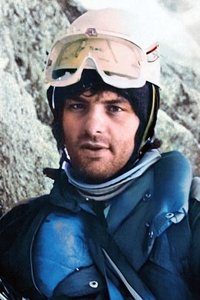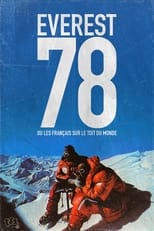
Walter Ceccinel
Born in 1946 in Cison di Valmarino in Italy, Walter Cecchinel arrived in France in 1949 and lived mainly in Haute-Savoie. After having studied technical mechanics, he discovered the mountains at the age of twenty. He obtained the diploma of aspirant-guide in 1968 before obtaining that of high mountain guide in 1971. The following year, he became the youngest teacher at the National School of Skiing and Mountaineering in Chamonix and teaches a new... technique he has perfected, the ice axe-traction. This technique revolutionized in a few years the way of apprehending ice climbing in France. The Scots had already been using it without making it known for several months. He developed this new way of climbing during the first direct ascent of the north face of the Grand Pilier d'Angle in the Mont-Blanc massif on September 16 and 17, 1971, in the company of Georges Nominé. The first real application of the ice axe-traction in the Alps took place during the first winter route of the Lagarde Ségogne corridor to the Aiguille du Plan on December 28, 29 and 30, 1971, with his friend Claude Jager. The crowning achievement of his career in the Alps was the realization of the first ascent of the northeast corridor of Les Drus in Chamonix from December 28 to 31, 1973, accompanied by Claude Jager4. He then took part in the ENSA expedition to the Nanda Devi (Garwall Himalayas in India) where he reached the eastern summit at 7,432 m with Yves Pollet-Villard and Dorgee Lathoo. His career was abruptly interrupted by a serious mountain accident on August 17, 1977, following which he underwent numerous operations resulting in hospitalization for almost a year. Despite the aftermath of his accident, he went to Everest (8,849 m) by the side of Nepal with the first French expedition led by Pierre Mazeaud who reached the summit on October 15, 1978, then participated in the French expedition to Nanga. Parbat (8,126 m) in Pakistan5. The end of his career in the Himalayas was marked by his participation in the French expedition to Hidden Peak (8,068 m) in Pakistan6. Draftsman and technical designer, he then became an advisor to many brands of French and foreign mountain equipment. In particular, he designed for Simond the first industrial ice ax obtained by cutting and folding, designed the first modern crampon with aligned points in 1971, the first polyamide and leather glove for Racer in 1973, the first ventilated backpack for Millet in 1974. and the first Gore-Tex lined shoe in Europe for Trappeur in 1974. He also works for Cébé, Duret, Topiol, Cimalp, Moncler, Bachelier Protectant, Haase, Reusch, Ferrino and Grivel. He is considered one of the specialists in mountain backpacks, which he has been able to develop with numerous innovative systems.


